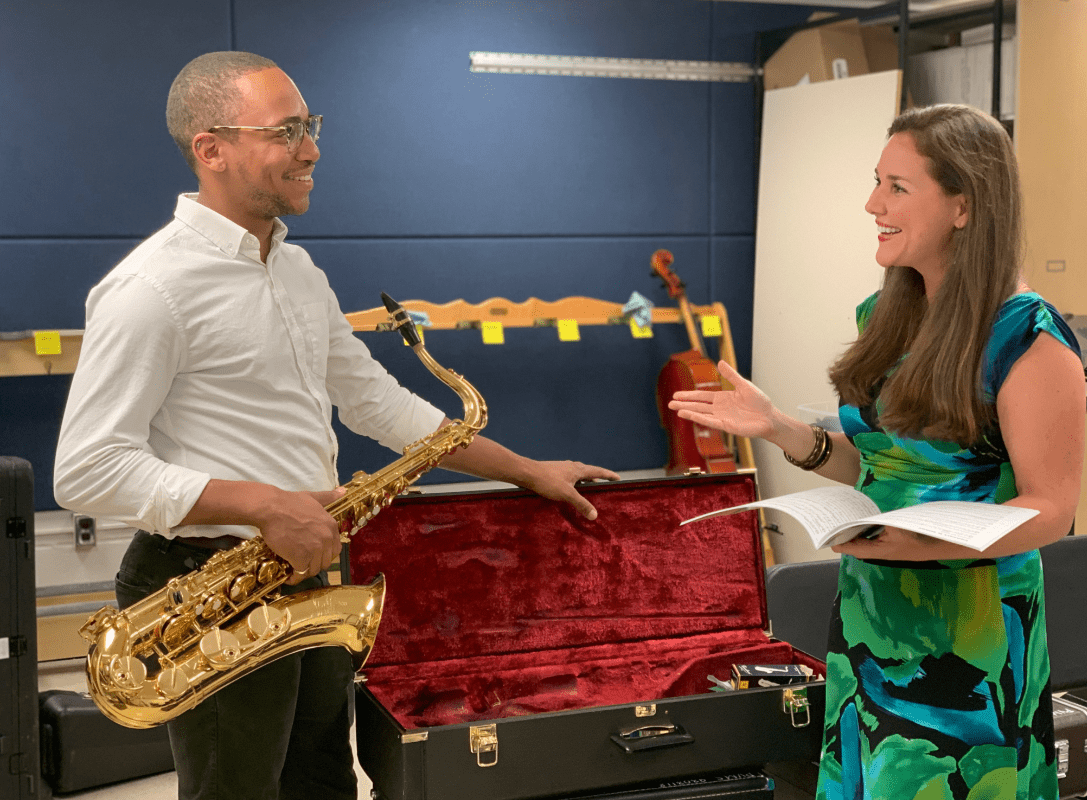/ News Posts / 5 Skills of an Engaged and Enthusiastic Mentee
5 Skills of an Engaged and Enthusiastic Mentee
How to Get the Most from a Musical Mentor
By NAfME Member Lori Schwartz Reichl
This article first appeared in the October 2019 issue of Teaching Music.
Don’t wait until things are “perfect” to seek feedback. Here’s how to get the most from a musical mentor.
A single Google search for the word mentoring will unveil several articles describing how to be an effective mentor—from understanding the role of mentor, explaining what quality mentors do and how they act, to listing the dos and don’ts of mentoring. However, for the mentoring relationship to be beneficial, effective, and respectable, the mentee should also possess a specific skill set.
A mentorship can take many forms including engaging in meetings, meals, phone calls, email exchanges, or even text or private messages. However, inviting others into your teaching space to observe and critique is the simplest and fastest way to improve your teaching. A master educator can examine the routines, nuances, and responses of both you and your students and provide immediate feedback. Suggestions can be written or verbal. When time permits, hopefully a conversation will follow providing any explanations and prioritizing of tasks.

Lori Schwartz Reichl Mentoring Tyrone Page, Oakland Mills Middle School, Columbia, Maryland.
Photo credit: Tyrone Page
Teachers, particularly novice ones, often avoid reaching out for help due to a lack of preparation. The teachers, the students, or the program may not be ready for a visitor. The teachers may be waiting for exemplary instruction and maximum learning to be achieved before opening their classroom doors to a visitor—particularly one who is there to offer feedback. When teachers avoid the opportunity for mentorship, excuses abound such as: “My ensemble is not performing at a high level.” “I haven’t figured out the pacing of my class yet.” “My students are not well-behaved.” However, these are all excellent reasons why establishing a mentorship may significantly enhance your teaching, expand your students’ learning, and refine a musical performance.
A mentorship allows another educator to share relatable experiences, identify strengths and limitations, and provide new perspectives. It can also allow the mentee to discover traits about oneself that may have been unrecognizable or to provide affirmation that a framework for teaching is being established.
Those hoping to be mentored, should consider five skills:
- Acknowledge. Recognize that you may not possess all knowledge regarding certain topics. Demonstrate a desire to expand your capabilities, improve specific skills, and be open to new ways of thinking. Admit that you are willing to develop a productive relationship with a mentor, will listen to advice offered, and will accept feedback.
- Ask. There is no shame in asking for help. Showing vulnerability can be difficult, but is often necessary for growth. Identify a master educator you admire and respect. This person could be located inside or outside of your building, within your school system, or even located in another region or state. This person may currently be teaching, serving in a different capacity, or possibly even be retired. Consider someone who may have had similar challenges and was able to overcome them.
- Value the time. Everyone is busy regardless of their position, age, or personal responsibilities. Provide valuable information that may fast-track your teaching strategies and students’ learning. Establish obtainable goals. Be very clear when asking questions on particular areas of struggle. Try not to complain! Listen carefully. Ask questions. Role-play. Take notes if necessary.
- Experiment. Don’t expect all the answers to be handed to you on a silver platter. Follow through on the recommendations. Be self-motivated in the absence of your mentor. Research supplemental resources. Remain committed to the plan, even if it does not work immediately.
- Show gratitude. Say thank you—each time. Return the kindness in your own unique way.
About the author:
Lori Schwartz Reichl is an author, educator, and consultant. Visit her at makingkeychanges.com.
Did this blog spur new ideas for your music program? Share them on Amplify! Interested in reprinting this article? Please review the reprint guidelines.
The National Association for Music Education (NAfME) provides a number of forums for the sharing of information and opinion, including blogs and postings on our website, articles and columns in our magazines and journals, and postings to our Amplify member portal. Unless specifically noted, the views expressed in these media do not necessarily represent the policy or views of the Association, its officers, or its employees.
September 8, 2020. © National Association for Music Education (NAfME.org)
Published Date
September 8, 2020
Category
- Careers
- Lifelong Learning
- Music Educator Workforce
- Preparation
Copyright
September 8, 2020. © National Association for Music Education (NAfME.org)






